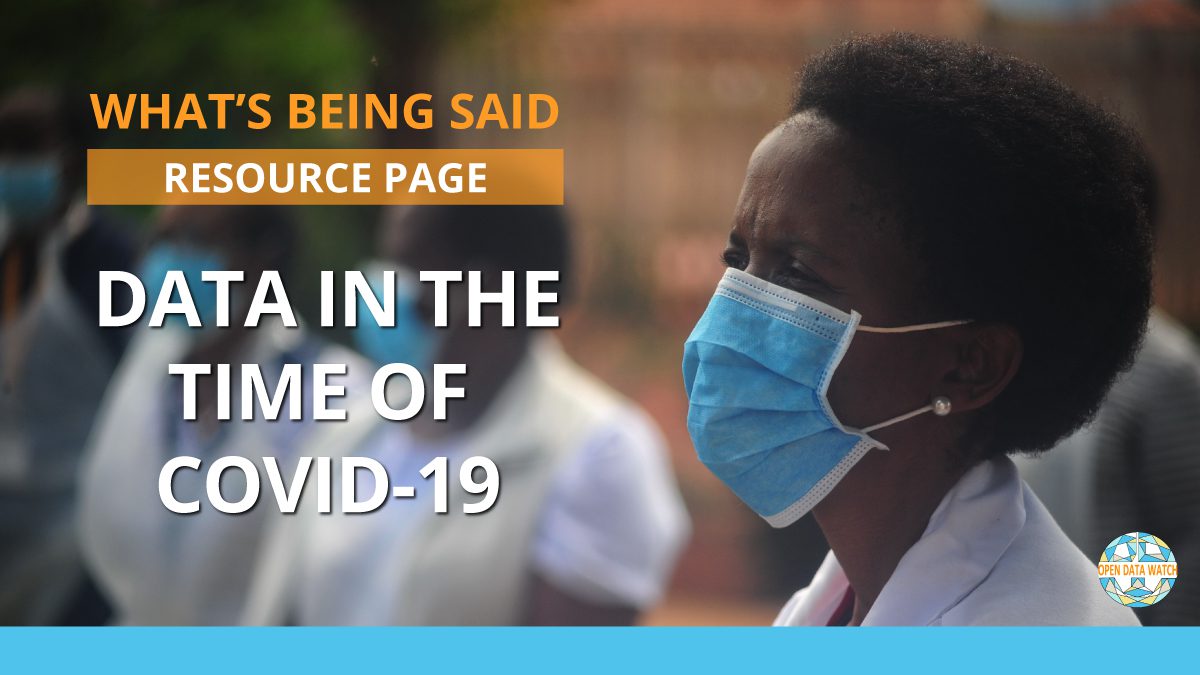Survey research is essential in developing countries to gather important data for decision-making and policy development in a concise and accurate manner. These surveys provide valuable insights into the social, economic, and political landscape, helping to identify challenges and opportunities for development.
Conducting surveys in developing countries requires careful planning, taking into account language barriers, cultural sensitivities, and accessibility issues. By leveraging technology and implementing innovative survey methodologies, researchers can overcome these challenges, ensuring reliable and representative data collection. This article explores the significance of survey research in developing countries and the strategies employed to conduct effective surveys in these contexts.
It highlights the importance of collaboration with local partners, capacity building, and inclusive approaches to ensure the relevance and validity of survey findings.
Importance Of Survey Research In Developing Countries
Survey research plays a vital role in the development of developing countries, facilitating informed decision-making and policy formulation. It provides valuable insights and data, helping identify challenges and opportunities for growth and development.
Why Survey Research Is Crucial For Developing Countries
Survey research plays a crucial role in developing countries by providing valuable insights and data that can drive growth and development. In many developing countries, there is a lack of reliable data and information due to various socio-economic challenges. Survey research helps bridge this gap by collecting accurate and representative data through systematic methods.
Here’s why survey research is so important:
- Identifying needs and priorities: Surveys enable researchers and policymakers to understand the specific needs and priorities of the population in developing countries, whether it’s healthcare, education, infrastructure, or other areas. This information helps in effective resource allocation and decision-making.
- Monitoring progress and impact: Surveys allow for the monitoring of progress and impact of development programs and policies. By conducting regular surveys, governments and organizations can gauge whether their initiatives are making a positive difference and adjust their strategies accordingly.
- Policy formulation and evaluation: Survey research provides evidence-based insights that can inform policy formulation and evaluation. It helps policymakers understand the challenges faced by the population and devise effective strategies to address them. Additionally, surveys provide valuable feedback on the implementation and effectiveness of existing policies.
- Targeted interventions: Surveys help in targeting interventions towards specific population groups or regions where they are most needed. Understanding the socio-economic characteristics of different communities helps in designing targeted interventions that can have a meaningful impact on their lives.
- Empowering communities: Survey research involves engaging with the local communities and giving them a voice. By actively involving the population in surveys, it empowers them to express their opinions and be part of the decision-making process.
The Potential Insights And Benefits It Can Provide For Global Growth
Survey research in developing countries not only benefits the specific regions but also has significant implications for global growth. Here are some potential insights and benefits it can provide:
- Addressing global development challenges: Developing countries often face unique challenges that can impact global growth and development. Through survey research, valuable insights can be gained into these challenges, enabling the global community to develop targeted solutions.
- Identifying emerging trends and opportunities: Surveys can uncover emerging trends and opportunities in developing countries, such as changes in consumer behavior, market potential, or untapped resources. This information can help businesses and organizations make informed decisions and expand their operations, benefiting both local economies and the global market.
- Informing international collaborations: Survey research provides valuable data that can inform international collaborations and partnerships. By understanding the needs and priorities of developing countries, organizations and governments from around the world can work together to design effective interventions and initiatives.
- Sharing best practices: Successful survey research projects in developing countries can serve as best practice examples for other regions facing similar challenges. Sharing knowledge and lessons learned can contribute to global knowledge exchange and facilitate more effective development strategies.
Examples Of Successful Survey Research In Developing Countries
Survey research has been successfully conducted in various developing countries, providing valuable insights and facilitating positive change. Here are some examples:
- The Demographic and Health Surveys (DHS) program has been conducting surveys in many developing countries, focusing on maternal and child health, family planning, and other health indicators. These surveys have provided crucial information for policy formulation and program evaluation.
- The World Bank’s Enterprise Surveys gather data from private sector firms in developing countries to understand the business environment, identify obstacles, and provide recommendations for improving the investment climate.
- The Global Findex Database, led by the World Bank, conducts surveys in developing countries to track financial inclusion and assess the impact of financial access on poverty reduction and economic development.
- The Gallup World Poll collects data from various developing countries on topics such as well-being, governance, and education. These surveys help in understanding the socio-economic landscape and informing policy decisions.
These examples demonstrate the diverse applications and positive outcomes of survey research in developing countries, highlighting its significance in driving social, economic, and global progress.
Challenges Of Conducting Survey Research In Developing Countries
Conducting survey research in developing countries presents unique challenges due to limited resources, cultural barriers, and unreliable infrastructure. Overcoming these obstacles is crucial for obtaining accurate data and understanding social, economic, and health issues in these contexts.
Conducting survey research in developing countries can present significant challenges. From issues with data collection and sampling methods to cultural and language barriers researchers may face, there are many factors that can make the process more complex. Additionally, the lack of technological infrastructure and resources in these countries further adds to the difficulties researchers encounter.
Let’s explore these challenges in more detail:
Issues With Data Collection And Sampling Methods:
- Limited access to accurate and updated population data: The lack of reliable population data makes it challenging to determine the appropriate sample size and target population for surveys.
- Difficulty in obtaining representative samples: The absence of comprehensive databases or reliable sampling frames increases the difficulty of selecting representative samples for research purposes.
- Inadequate response rates: The low literacy rates, lack of awareness, and reluctance of participants to engage in survey research can result in low response rates, affecting the overall validity of the collected data.
- Privacy concerns and data protection: In some developing countries, individuals may be skeptical about participating in surveys due to concerns about their privacy and the potential misuse of their personal information.
Cultural And Language Barriers That Researchers May Face:
- Diverse cultural norms and practices: Cultural differences can impact the interpretation and response patterns of individuals, making it essential for researchers to carefully design and adapt survey instruments to the local cultural context.
- Language diversity: Developing countries often have multiple languages spoken within their populations. Researchers need to consider language barriers and ensure translations and interpretations are accurate to capture reliable data.
- Socio-cultural taboos and sensitivities: Certain topics may be considered sensitive or inappropriate in specific cultural contexts, requiring researchers to navigate these sensitivities while designing surveys and collecting data.
Lack Of Technological Infrastructure And Resources:
- Limited access to technology: Developing countries often lack access to the internet, computers, and smartphones, making it challenging to implement online or digital survey methods.
- Insufficient power supply and internet connectivity: Frequent power cuts and unreliable internet connection can hinder data collection and may require researchers to resort to manual or offline data collection methods.
- Inadequate training and resources: The lack of trained personnel, resources, and funding further compounds the difficulties faced by researchers. This can affect data quality, analysis, and overall research outcomes.
Conducting survey research in developing countries requires researchers to navigate numerous challenges related to data collection, sampling methods, cultural barriers, and technological limitations. By understanding and addressing these challenges, researchers can strive to gather valuable insights and contribute to the development of these countries.
Strategies For Successful Survey Research In Developing Countries
Survey research in developing countries requires effective strategies for successful outcomes. These strategies focus on overcoming unique challenges, such as limited resources, cultural barriers, and language diversity, to ensure accurate data collection and analysis.
Tailoring survey instruments to the local context:
- Understand the local culture and language to ensure survey questions are appropriate and relevant.
- Consider using visual aids or illustrations to make the survey more accessible to respondents.
- Simplify questions and avoid jargon or complex language that may be difficult for participants to understand.
- Use inclusive and culturally sensitive language to ensure all groups feel comfortable participating.
Training and empowering local researchers:
- Provide comprehensive training to local researchers on survey administration techniques, data collection protocols, and ethical considerations.
- Collaborate with local universities or research institutions to recruit and train qualified researchers.
- Foster a supportive and inclusive environment that encourages local researchers to take ownership of the project.
- Ensure continuous support and mentorship for local researchers throughout the survey process.
Utilizing mobile technology for data collection:
- Take advantage of the widespread availability of mobile phones in developing countries for data collection.
- Develop user-friendly mobile applications or text messaging platforms to administer surveys.
- Use mobile technology to collect real-time data, reducing transcription errors and increasing data accuracy.
- Leverage GPS capabilities in mobile devices to capture location-specific information for more precise data analysis.
Remember, successful survey research in developing countries requires tailoring survey instruments to the local context, training and empowering local researchers, and utilizing mobile technology for data collection. By adapting surveys to cultural norms, providing adequate training to local researchers, and leveraging mobile technology, researchers can overcome various challenges and gather valuable data that can drive meaningful change.
Case Studies: Effective Survey Research In Developing Countries
Explore the effectiveness of survey research in developing countries through compelling case studies. Gain insights into the challenges and strategies implemented to optimize data collection in these unique contexts.
Case Study 1: Survey Research On Healthcare Access In A Developing Country
- Limited access to healthcare services is a major challenge in many developing countries. Conducting survey research on healthcare access can provide crucial insights into the existing gaps and potential solutions. Here is a case study showcasing effective survey research on healthcare access in a developing country:
- The research team developed a comprehensive survey questionnaire focusing on various aspects of healthcare access, such as availability, affordability, and quality of services.
- By partnering with local NGOs and community leaders, the researchers ensured a representative sample population for the survey.
- The survey was conducted using a mix of face-to-face interviews and online platforms to reach a wider audience.
- Statistical analysis techniques were employed to identify the key challenges and correlations related to healthcare access in the country.
- The findings from the survey were used to inform policy recommendations and advocate for improvements in healthcare infrastructure and services.
Case Study 2: Survey Research On Income Inequality In A Developing Country
- Income inequality is a pressing issue in many developing countries, impacting socio-economic stability and opportunities for marginalized populations. Let’s explore an example of survey research on income inequality in a developing country:
- A team of researchers designed a survey questionnaire to gather data on income levels, employment conditions, and access to social support programs, among other relevant factors.
- The survey employed random sampling techniques to ensure a representative sample of the population across different income brackets and geographical locations.
- Researchers also used qualitative methods, such as in-depth interviews, to gather insights into the experiences and perspectives of individuals affected by income inequality.
- The collected data was analyzed using statistical tools to uncover patterns and correlations between income disparities and various demographic, social, and economic variables.
- The study’s findings were shared with policymakers and non-profit organizations to support evidence-based decision-making and the development of targeted interventions to tackle income inequality effectively.
Case Study 3: Survey Research On Education Outcomes In A Developing Country
- Access to quality education is vital for the development and well-being of individuals and societies in developing countries. Let’s explore a case study highlighting effective survey research on education outcomes in a developing country:
- Researchers designed a comprehensive survey questionnaire addressing various aspects of education outcomes, including enrollment rates, quality of instruction, infrastructure, and availability of educational resources.
- The survey was administered to students, parents, teachers, and education administrators from diverse regions within the country to capture a comprehensive picture.
- Quantitative data collected through the survey was complemented by qualitative insights gained from focus group discussions and interviews, allowing for a holistic understanding of the challenges and opportunities.
- Rigorous data analysis techniques were applied to identify factors influencing education outcomes, including socio-economic disparities, gender biases, and teacher quality.
- The research findings provided evidence-based recommendations and insights for improving education policies, resource allocation, and curriculum development to enhance educational outcomes in the country.
By examining these case studies, we can recognize the power of survey research in shedding light on critical issues faced by developing countries. Through comprehensive and well-executed surveys, valuable data can be gathered to inform evidence-based decision-making and drive positive change in healthcare access, income inequality, and education outcomes.
Ethical Considerations In Survey Research In Developing Countries
Ethical considerations surrounding survey research in developing countries are crucial to ensure the integrity and accuracy of collected data. These considerations include obtaining informed consent, protecting participant confidentiality, and addressing power imbalances to promote fair participation.
In survey research conducted in developing countries, it is crucial to address various ethical considerations to ensure that the rights and interests of participants are protected. This section focuses on three key ethical considerations: ensuring informed consent and privacy protection, addressing potential power imbalances between researchers and participants, and incorporating local cultural norms and ethical guidelines.
Ensuring Informed Consent And Privacy Protection:
- Clearly explain the purpose and objectives of the survey to participants, ensuring they fully understand the nature of their involvement.
- Obtain written or verbal consent from participants, emphasizing their right to withdraw from the survey at any time.
- Protect participants’ privacy by ensuring that their personal information remains confidential and will not be shared with unauthorized individuals.
- Use secure data storage and transmission methods to minimize the risk of data breaches and unauthorized access.
Addressing Potential Power Imbalances Between Researchers And Participants:
- Establish a respectful and egalitarian relationship with participants, emphasizing their autonomy and equal status.
- Ensure that participants have the freedom to decline participation without facing negative consequences.
- Seek input from participants throughout the research process, actively listening to their concerns and perspectives.
- Provide opportunities for participants to review and validate the collected data to ensure accuracy and fairness.
Incorporating Local Cultural Norms And Ethical Guidelines:
- Familiarize yourself with the cultural norms and values of the local community before conducting the survey.
- Adapt survey instruments and methodologies to be culturally sensitive and acceptable to the participants.
- Collaborate with local researchers or community leaders to gain insights into the ethical considerations specific to the cultural context.
- Comply with any local or national ethical guidelines and regulations governing survey research.
By taking into account these ethical considerations, researchers can promote the well-being and autonomy of participants while conducting survey research in developing countries. Remember, ethical research practices are essential for building trust with the community and ensuring the validity and reliability of the collected data.
Future Trends And Innovations In Survey Research For Global Growth
Survey research in developing countries is witnessing future trends and innovations, paving the way for global growth. The incorporation of advanced technology and tailored methodologies is revolutionizing data collection and analysis, enabling researchers to gain valuable insights for effective decision-making and progress in these regions.
The Role Of Artificial Intelligence In Survey Research
Artificial intelligence (AI) has made significant advancements in recent years and is revolutionizing the field of survey research in developing countries. Here are some key points regarding the role of AI in survey research:
- Automated data collection: AI-powered survey tools can automate the data collection process by designing intelligent surveys and administering them to a wide range of respondents. This not only saves time and resources but also ensures consistency and accuracy in data collection.
- Natural language processing (NLP): AI algorithms can analyze and interpret written or spoken responses through NLP techniques. This enables researchers to gain valuable insights from open-ended survey questions without manually going through each response.
- Sentiment analysis: AI can detect sentiment in survey responses, enabling researchers to understand the emotional tone of the respondents. This information can provide additional context and insights into their opinions, attitudes, and behaviors.
- Predictive analytics: AI algorithms can be used to analyze survey data and identify patterns, trends, and predictive models. By harnessing the power of AI, researchers can make data-driven predictions and recommendations for future decision-making.
- Personalized surveys: AI technology allows for dynamic and personalized surveys tailored to each respondent’s characteristics and preferences. This leads to increased engagement and higher-quality responses.
Blockchain Technology For Secure And Transparent Data Collection
Blockchain technology has the potential to address many challenges associated with data collection, particularly in developing countries. Here’s how blockchain can revolutionize survey research:
- Data security: Blockchain provides a decentralized and tamper-resistant ledger that ensures the security and integrity of survey data. By eliminating the need for a single central authority, blockchain mitigates the risk of unauthorized access, data breaches, and manipulation.
- Data privacy: With blockchain, survey respondents can have more control over their personal data. They can choose how their data is used, securely grant access, and even revoke it at any time. This enhances trust and encourages participation in surveys.
- Transparent data collection: Blockchain technology enables transparent and auditable data collection. Each survey response and subsequent data modification is recorded in a transparent and immutable manner, ensuring traceability and accountability throughout the research process.
- Real-time data verification: Blockchain can facilitate real-time verification of survey data authenticity. Researchers can ensure the accuracy and reliability of data by cross-referencing responses with blockchain records, reducing the risk of fraudulent or duplicate entries.
- Incentivized participation: Blockchain networks can incorporate token-based rewards as an incentive for survey participation. This can help increase response rates, especially in hard-to-reach populations, and foster a more inclusive and representative sample.
Harnessing Big Data And Analytics For More Accurate Insights
The advent of big data and advanced analytics has opened up new possibilities for survey research in developing countries. Here’s how researchers can leverage big data and analytics for more accurate insights:
- Data integration: By combining traditional survey data with various sources of big data (e.g., social media, mobile phone records), researchers can gain a more comprehensive understanding of respondents’ behaviors, preferences, and social interactions.
- Real-time monitoring: Big data analytics enables researchers to monitor trends and changes in real-time, allowing for timely interventions and adjustments.
- Predictive modeling: Advanced analytics techniques, such as machine learning and predictive modeling, can identify patterns and relationships in survey data that traditional analysis might miss. This helps researchers make more accurate predictions and optimize interventions.
- Data visualization: Big data analytics tools enable the visualization of survey data in intuitive and interactive formats. This makes it easier for researchers to communicate findings and insights to stakeholders, facilitating evidence-based decision-making.
- Scalability and cost-effectiveness: Big data analytics allows researchers to analyze large datasets quickly and cost-effectively. This scalability enables more extensive analysis, resulting in more nuanced insights and recommendations.
The future of survey research in developing countries lies in the integration of AI, blockchain technology, and big data analytics. As these innovations continue to evolve, they will enhance the effectiveness, efficiency, and reliability of survey research, ultimately driving global growth and development.

Credit: www.gensler.com
Frequently Asked Questions Of Survey Research In Developing Countries
What Are The Problems Faced By Researchers During Research In Developing Countries?
Researchers in developing countries face challenges such as limited funding, inadequate infrastructure, lack of resources, and language barriers.
What Is The Importance Of Research In Developing Countries?
Research plays a crucial role in developing countries by driving innovation, informing policies, and addressing community needs.
What Is Survey Research Method?
Survey research method is a data collection technique using questionnaires to gather information from a group of people.
Why Is Survey Research Important?
Survey research is important because it provides valuable insights and data quickly from a large group of people.
Conclusion
Conducting survey research in developing countries can be a challenging but critically important endeavor. The insights gained from these surveys can provide valuable data to inform policy-making, improve development programs, and address the unique needs and preferences of populations in these countries.
By implementing effective survey methodologies and considering the cultural, economic, and technological context, researchers can overcome the challenges of language barriers, limited resources, and lack of infrastructure. Additionally, collaborating with local communities and organizations can enhance the credibility and relevance of the research findings.
As developing countries continue to strive for progress and sustainable development, survey research plays a crucial role in understanding the social, economic, and political dynamics at play. It is through these insights that we can work towards empowering communities, reducing inequalities, and shaping a better future for all.
- Survey Service : Boost Your Business with Dynamic Data - January 9, 2024
- Survey Completion: Unlocking Insights and Enhancing Decision-Making - January 9, 2024
- Attitude Survey: Uncover the Hidden Insights - January 9, 2024


